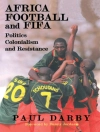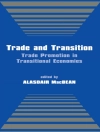This volume offers a collection of lucid, theoretically stimulating articles that explore and analyse the institutions and values which are salient in understanding political practices in South Asia. Combining a wide range of theoretical and empirical approaches, and blending the work of experts long established in their respective fields with refreshing and innovative approaches by younger scholars, this collaborative and cross-disciplinary endeavour facilitates a deeper understanding of the subcontinent’s diverse and complex political and democratic practices in the 21st century.
Spis treści
1. Introduction – Stig Toft Madsen, Kenneth Bo Nielsen and Uwe Skoda; 2. Why Did India Become a Democracy and Why Did It Remain Democratic? A Survey of the Literature and Some Comments to the Scholarly Debate – Jørgen Dige Pedersen; 3. Democracy in Bangladesh: A Village View – Arild Engelsen Ruud; 4. Ajit Singh s/o Charan Singh – Stig Toft Madsen; 5. A Princely Politician in an Indigenized Democracy: A Raja and His Electoral Situation in Rural Orissa 2004 – Uwe Skoda; 6. A Political Breakthrough for Irrigation Development: The Congress Assembly Campaign in Andhra Pradesh in 2003-2004 – Pamela Price; 7. Congress Factionalism Revisited: West Bengal – Kenneth Bo Nielsen; 8. Nepal: Governance and Democracy in a Frail State – Neil Webster; 9. Entanglement of Politics and Education in Sri Lanka – Birgitte Refslund Sørensen; 10. Shifting Between the Local and Transnational: Space, Power and Politics in War-Torn Sri Lanka – Cathrine Brun and Nicholas Van Hear; 11. Domestic Roots of Indian Foreign Policy – Walter Andersen; 12. Political Practice and Post-Islamism in Pakistan – Thomas Gugler
O autorze
Stig Toft Madsen has taught and researched in universities in Denmark and Sweden.
Kenneth Bo Nielsen is research fellow at the Centre for Development and the Environment, University of Oslo, Norway.
Uwe Skoda is assistant professor of South Asian studies at Aarhus University, Denmark.












